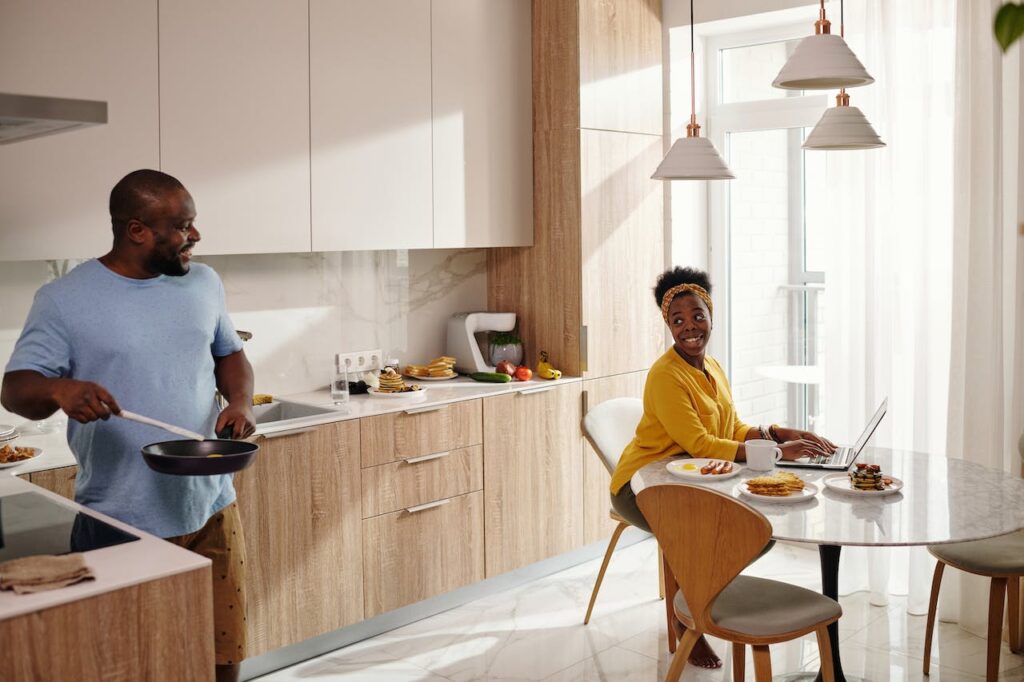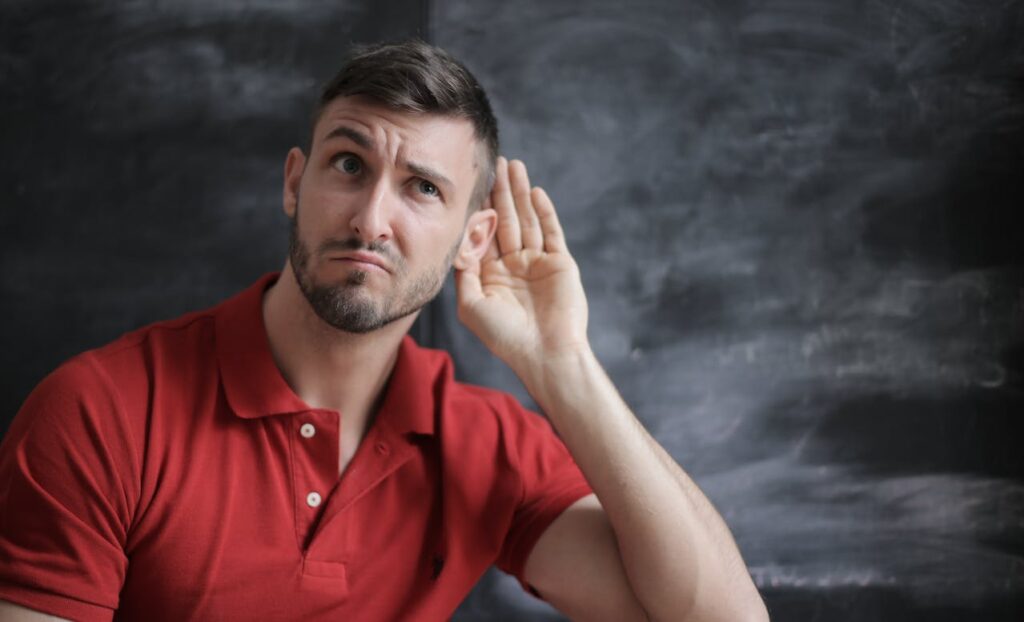Listening in Relationships for Men
The intricate tapestry of human relationships is woven with threads of communication. For men, especially in romantic relationships, being an active listener is often emphasized as a pivotal cornerstone. But why is it so fundamental? Understanding the Importance of Listening in Relationships for Men is more than a skill—it’s an emotional bridge, connecting two souls, and facilitating mutual respect and love.
- Listening in Relationships for Men
- The Core Foundations of Active Listening
- The Pillars of Effective Listening for Men
- Frequently Asked Questions About Listening in Relationships for Men
- The Different Types of Listening
- Challenges Men Face in Listening
- Enhancing Your Listening Toolkit
- Frequently Asked Questions About Listening in Relationships for Men (Continued)
- Practical Ways to Hone Listening Skills
- The Ripple Effect of Good Listening
- Beyond Relationships: The Broader Impact
- Frequently Asked Questions About Listening in Relationships for Men (Continued)
- Navigating Challenges in Listening
- Tools to Augment Listening
- The Rewarding Journey Ahead
- Frequently Asked Questions About Listening in Relationships for Men (Continued)
- The Deeper Meaning of Listening
- The Path to Becoming a Better Listener
- The Gift of Listening
- Listening in Relationships for Men Conclusion
- Frequently Asked Questions (Concluded)
The Core Foundations of Active Listening
What is Active Listening?
Active listening is not merely about being quiet while the other person talks. But it involves giving your full attention, interpreting the speaker’s words, and responding thoughtfully. Moreover, good communication thrives on active listening techniques, ensuring a mutual understanding.
Why Men Need to Cultivate This Skill
For many, the notion of men being good listeners might not be the first thought. However, embracing effective communication is the first step to building stronger relationships, opening the door to intimate moments and deeper connections.
The Pillars of Effective Listening for Men

Body Language and Nonverbal Cues
- Eye Contact: More than just a polite gesture, maintaining eye contact signifies that you’re offering your undivided attention.
- Posture: Besides an open posture, devoid of crossed arms or legs, suggests openness to new ideas and a willingness to engage.
- Facial Expressions: They can reveal a lot about one’s own emotions. Specifically a genuine smile or a concerned frown can make the speaker feel validated.
Being Present in the Conversation
Men often juggle a to-do list in their minds, but when it comes to crucial conversations, it’s essential to put that list on hold. Offering your full attention not only enhances the communication process but also elevates the relationship’s quality.
The Value of Empathy
Empathic listening goes a long way. It’s about feeling with the speaker, understanding their perspective, and validating their feelings. Clinical psychologist Dr. John Gottman mentions that empathy skills, when cultivated, can have a positive impact on interpersonal relationships.
Refraining from Immediate Solutions
Sometimes, the best way to support is not by offering solutions but by merely being there. Men, conditioned by society in different ways, often lean towards problem-solving. However, understanding the importance of listening in relationships for men means recognizing that not every conversation requires a fix.

Frequently Asked Questions About Listening in Relationships for Men
Why is good communication integral in relationships for men?
Good communication is the backbone of mutual understanding. It fosters trust, deepens bonds, and paves the way for a healthier communication style in relationships.
What are some common barriers to effective listening?
Distractions, personal biases, and preconceived notions can hinder the listening process. Recognizing and addressing these can lead to clearer understanding.
How does one develop active listening skills?
Practice, awareness, and a genuine interest in the speaker’s thoughts are pivotal. Attending workshops or seeking advice from relationship experts can also be beneficial.
The foundation is set, and we’re just scratching the surface of “Understanding the Importance of Listening in Relationships for Men.” Ahead, we’ll delve deeper into the different types of listeners, the challenges men face, and actionable tips to enhance listening prowess.
The Different Types of Listening
1. Deep Listening
Deep listening is an immersive experience. It involves tuning into not just words but also the tone of voice, pauses, and the underlying emotions. This form of listening fosters a safe space where both parties feel truly heard and understood.
2. Action-Oriented Listening
Men often gravitate towards this form of listening, seeking clarity and resolution. While it’s essential in specific contexts, understanding the importance of listening in relationships for men means recognizing when to step back from being action-oriented and simply being present.
3. People-Oriented Listening
This style prioritizes the speaker’s feelings and emotions. Chiefly, it’s about creating a connection and understanding the person’s perspective. Also for many, this form of empathic listening creates the most meaningful relationships.
4. Critical Listening
Critical listening evaluates the speaker’s words, discerning the factual information from opinions. While it’s beneficial in debates or discussions, it’s vital to approach this style with an open mind in intimate relationships to avoid communication breakdown.
Challenges Men Face in Listening

Shedding Societal Expectations
Many men grow up with societal pressures that dictate how they should behave. However these molds often emphasize solutions over empathy, creating barriers to genuine interpersonal communication. So breaking free from these constraints is the first step to becoming an effective listener.
Balancing Personal Needs with Listening
While listening is crucial, men also need a platform to express their own feelings. In fact striking a balance ensures a mutual exchange, promoting a healthy relationship dynamic.
Enhancing Your Listening Toolkit
The Power of Open-Ended Questions
Rather than resorting to yes/no inquiries, open-ended questions like “How did that make you feel?” or “What do you think about that?” encourage a richer dialogue, paving the way for a more profound mutual understanding.
Nonverbal Communication: More Than Meets the Eye
Beyond words, nonverbal cues, such as visual cues and body language, play a pivotal role in effective listening. Such as nods, gestures, and attentive body posture can validate a speaker’s words, reinforcing the bond between listeners and speakers.
Taking a Deep Breath Before Responding
One simple yet transformative technique is pausing and taking a deep breath before responding. As a result this brief moment allows for the processing of the speaker’s words and fosters a clearer, more thoughtful response.

Frequently Asked Questions About Listening in Relationships for Men (Continued)
Why is nonverbal communication significant in relationships?
Nonverbal cues often carry as much, if not more, weight than words. They offer insights into a person’s true feelings and thoughts, making them indispensable in interpersonal relationships.
How can men overcome societal expectations related to listening?
Self-awareness, education, and continuous self-improvement go a long way. Seeking support networks, like counseling or men’s groups, can also provide tools and perspectives to reshape learned behavior.
What’s the difference between hearing and listening?
Hearing is a passive process, simply perceiving sounds. Listening, on the other hand, is active and involves understanding, processing, and responding to those sounds.
So as we delve deeper into understanding the importance of listening in relationships for men, it becomes evident that this skill transcends mere communication. Moreover it’s a journey of self-awareness, empathy, and connection. Therefore in the sections ahead, we’ll explore more about the practical ways to embrace and hone this crucial skill.
Practical Ways to Hone Listening Skills
Practice Active Listening Daily
Like any skill, active listening improves with consistent practice. Start with everyday conversations, be it with a family member, a friend, or a colleague. Make it a point to offer your full attention, ask open-ended questions, and resist the urge to formulate a response while they’re still speaking.
Feedback is Golden
Request feedback from your partner or trusted individuals about your listening skills. They might offer valuable insights about instances when you may have seemed distracted or uninterested, allowing for focused improvement.
Engage in Listening Exercises
There are numerous exercises, both online and offline, that help cultivate listening skills. From guided meditation sessions that focus on deep listening to interpersonal workshops, seize opportunities to refine your skills.
The Ripple Effect of Good Listening

Fostering Trust and Intimacy
When you invest time in truly listening to your partner, it creates a secure foundation. Trust flourishes in an environment where both parties feel heard, understood, and valued. This foundation is instrumental in forging intimate relationships.
Boosting Self-awareness and Personal Growth
By being a great listener, you not only facilitate better understanding of your partner but also gain a clearer understanding of your own thoughts and emotions. Hence it’s a two-fold benefit that results in personal growth.
Avoiding Misunderstandings
In fact many conflicts arise from misunderstandings that could have been easily avoided with effective communication. Consequently being an attentive listener minimizes these potential pitfalls, ensuring that both parties are on the same page.
Beyond Relationships: The Broader Impact
Positive Social Interaction
Effective listening isn’t confined to romantic relationships. In the realm of social interactions, being an active listener fosters positive relationships, be it at work, among friends, or within the community.
Career Advancements
In the professional realm, good listening skills are invaluable. They can lead to clearer project guidelines, improved teamwork, and better client relationships. It’s no surprise that great listeners often find themselves climbing the corporate ladder more swiftly.
Enriching Personal Well-being
Listening transcends communication. At its core, it’s a form of mindfulness, bringing the listener to the present moment. This focus has profound implications for mental well-being, reducing stress and fostering a sense of calm.
Frequently Asked Questions About Listening in Relationships for Men (Continued)
Do listening skills have an impact on mental health?
Absolutely. Active listening provides a deeper connection with others, reducing feelings of isolation. Additionally, the mindfulness aspect of deep listening has been linked to improved mental well-being.
Can you recommend any resources to improve listening?
Yes, there are numerous books, workshops, and online courses dedicated to enhancing listening skills. Renowned relationship experts and clinical psychologists often provide resources, workshops, and tools tailored to individuals or couples.
How do listening skills play a role in conflict resolution?
Effective listening is a critical component of conflict resolution. By ensuring that all parties feel heard and understood, it lays the groundwork for mutual resolutions and compromises.
Understanding the importance of listening in relationships for men is akin to uncovering a secret key. A key that unlocks deeper connections, mutual understanding, and overall well-being. As we progress further, we’ll explore the challenges that might arise and how to navigate them efficiently.
Navigating Challenges in Listening

Recognizing Personal Barriers
Everyone, regardless of gender, brings their own baggage into relationships, which can impede effective listening. For men, this might include societal conditioning, previous experiences, or personal insecurities. Recognizing these barriers is the first step towards addressing them.
Avoiding Defensive Listening
Defensive listening occurs when the listener is more focused on defending their own feelings or point of view than understanding the speaker’s perspective. It’s crucial to maintain an open mind, especially during tough conversations, to avoid falling into this trap.
Handling Overwhelm and Emotional Fatigue
Consistently being a good listener can sometimes be emotionally taxing, especially when dealing with heavy topics. It’s essential for men to recognize when they need a break and communicate this need effectively to their partner.
Tools to Augment Listening
Mindfulness and Meditation
Mindfulness practices, such as meditation, can enhance one’s ability to be present in the moment, which directly correlates with being an effective listener. Regularly setting aside time for mindfulness can create a ripple effect, enriching not only listening capabilities but overall mental wellness.
Journaling for Reflection
Maintaining a journal can be a great way to reflect on conversations and one’s own listening behaviors. By jotting down thoughts and emotions post-discussions, men can gain insights into areas of improvement.
Engaging in Couple’s Therapy or Workshops
For those seeking structured guidance, couples therapy or workshops focused on communication can be invaluable. Relationship experts often provide tools and techniques tailored to enhance interpersonal communication within intimate relationships.
The Rewarding Journey Ahead

Celebrating Small Wins
Embracing the art of listening is a continuous journey. It’s essential to acknowledge and celebrate progress, however small, to stay motivated. Recognizing moments where effective listening led to positive outcomes can serve as a beacon of encouragement.
The Compound Effect
With each effort, the benefits of effective listening compound. Over time, the ripple effect extends beyond the immediate relationship, positively impacting various facets of life, from career to personal well-being.
Leaving a Legacy
Men who prioritize understanding the importance of listening in relationships not only benefit themselves but set a precedent for future generations. By showcasing the value of deep, empathic listening, they can inspire their children, family members, and peers to follow suit.
Frequently Asked Questions About Listening in Relationships for Men (Continued)
How can men handle emotionally charged conversations effectively?
Taking deep breaths, ensuring a comfortable tone, and seeking clarity rather than jumping to conclusions can make a significant difference during heated discussions.
What role does patience play in the listening process?
Patience is integral. It allows listeners to fully absorb the speaker’s message without rushing to conclusions or interjecting prematurely.
How can men balance their own need to be heard with their role as listeners?
Effective communication is a two-way street. Setting aside specific times for each partner to express themselves or using techniques like the “talking stick” method can ensure that both parties feel valued and heard.
The odyssey of understanding the importance of listening in relationships for men is both challenging and rewarding. As the narrative unfolds, the transformative power of truly hearing and being heard becomes evident. The journey doesn’t end here; it’s a lifelong endeavor of growth, connection, and love.
Read my Best 20 communication tips for men and greatly further your knowledge.
The Deeper Meaning of Listening
Beyond Words: Deciphering Emotions
At its core, listening goes beyond the verbal messages. It’s about tuning into the underlying emotions and understanding the essence of what’s being conveyed. For many, the words spoken are just the tip of the iceberg. Delving deeper and recognizing the emotions can lead to a richer, more intimate connection.
The Interconnectedness of Life
When men prioritize understanding the importance of listening in relationships, they not only foster better romantic partnerships but also contribute to the greater web of human interconnectedness. Every positive interaction, born from genuine listening, sends ripples throughout the broader community, fostering harmony and mutual respect.
The Path to Becoming a Better Listener

Continuous Learning
Like any skill, listening requires upkeep. Attending workshops, reading books on the subject, or even engaging in regular reflective practices can ensure that one’s listening abilities remain sharp and effective.
Seeking Mentorship
Learning from those who excel in active listening can be transformative. Whether it’s from relationship experts, elder family members with decades of marital experience, or trained counselors, mentorship can provide guidance on this journey.
Prioritizing Self-Care
Being an effective listener also requires self-awareness and self-care. Regularly tending to one’s own emotions and mental well-being ensures that one can approach conversations with clarity and genuine interest.
The Gift of Listening
Bestowing Time and Attention
In an age of digital distractions and endless to-do lists, choosing to give someone undivided attention is a precious gift. It signals respect, love, and genuine interest.
Unlocking the Door to Meaningful Bonds
By truly hearing another person, barriers break down, paving the way for deeper understanding and intimacy. It’s a key that unlocks the potential for relationships to flourish and grow.
The Legacy of Positive Relationships
Men who embrace the ethos of active listening not only enhance their personal relationships but leave behind a legacy. Their actions become a benchmark for future generations, underscoring the importance of genuine human connection.
Listening in Relationships for Men Conclusion
Understanding the importance of listening in relationships for men is not merely a chapter in a relationship guidebook; it’s a philosophy to live by. In a world where the clamor of voices often drowns out individual messages, choosing to listen, truly and deeply, is a revolutionary act. For men, it challenges age-old stereotypes, fostering personal growth and stronger relationships. By giving the gift of listening, men forge deeper connections, cultivate mutual respect, and, in the process, discover the profound joys of meaningful relationships.
Frequently Asked Questions (Concluded)
How can listening skills be incorporated into daily routines?
Incorporating small practices like minimizing distractions during conversations, dedicating specific ‘no-screen’ times for chats, or even engaging in listening-focused meditations can seamlessly integrate listening skills into daily life.
Is there a link between listening and emotional intelligence?
Absolutely. Effective listening is a hallmark of high emotional intelligence. It indicates an individual’s ability to perceive, understand, and manage not only their own emotions but also those of others.
What’s the ultimate takeaway for men on this topic?
Listening is not a passive act but a conscious choice. For men, understanding its importance in relationships offers a pathway to deeper connections, mutual growth, and a fulfilling relational journey.
